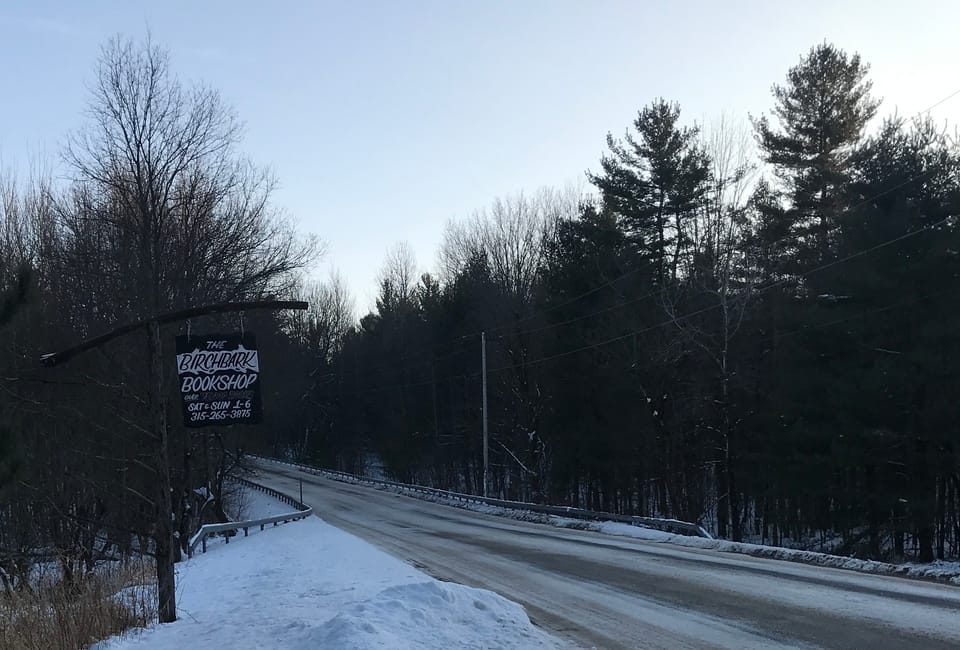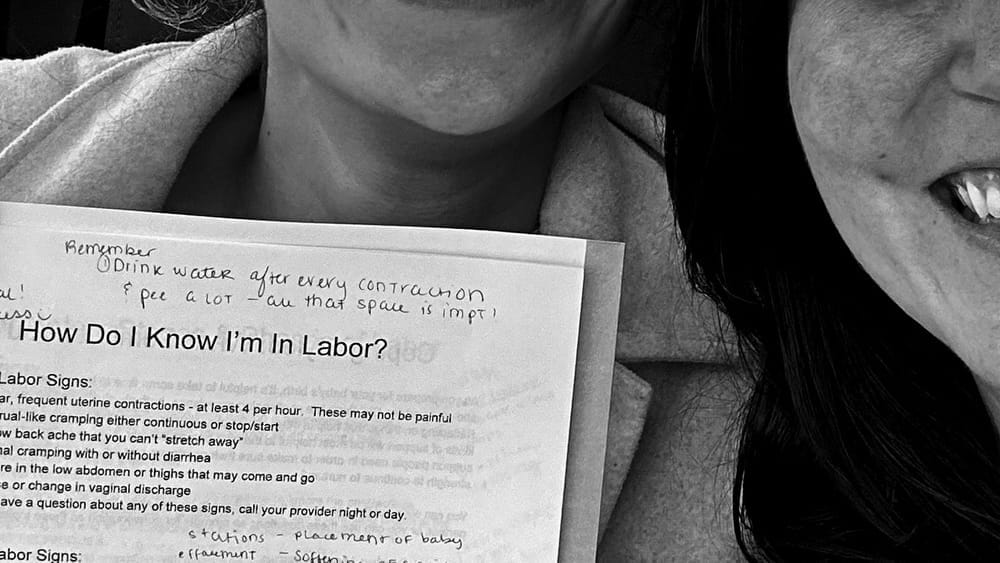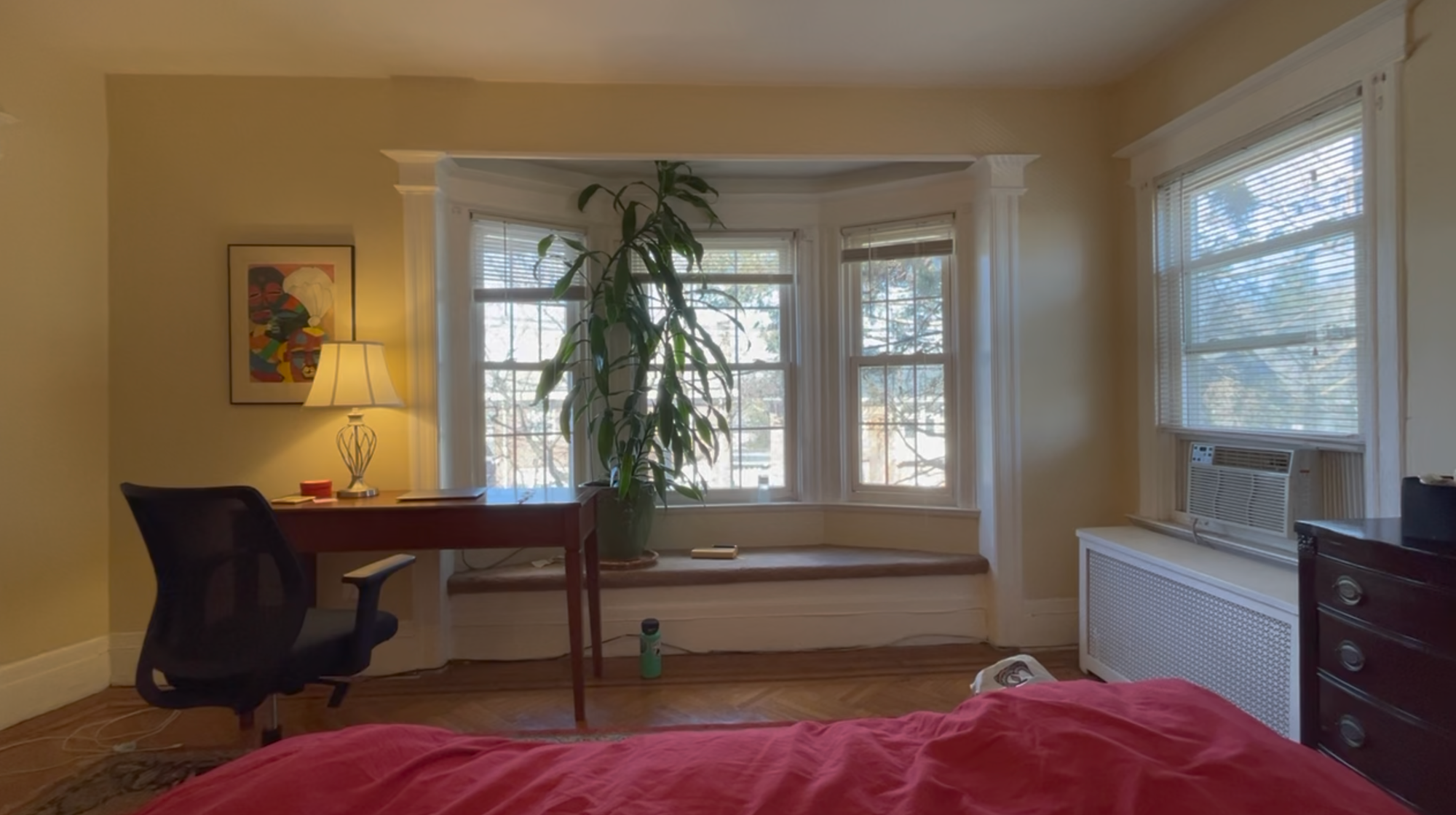hi 👋 and a year in review

Hi friends,
How are you? This is a rough end to a rough year. I hope you’re finding ways to stay afloat.
It’s been a long while since I’ve sent out a newsletter. The reasons for that are many but I won’t bore you with them. Suffice it to say: I’m glad to finally have a bit of time to put a note together. I’m going to keep this one short & sweet: Here you’ll find a collection of writing I’ve published lately, as well as a dusting of other things I’ve read recently and found to be clarifying in an otherwise unclear, foggy time.
I hope to be back with (somewhat) greater frequency in the new year. In the meantime, I’d ~love~ to hear from you. The emails, notes, and dm's I received in response to things I’ve published this year remain the highlight of writing for me. I love to hear your thoughts, questions, critiques, links, references, memes, life updates, all of it. Please keep sending them.
Happy dark season, and more to come,
k
💡 on my mind & updates
I felt fortunate to work on a wide variety of projects and writing assignments this year. Here’s a collection of the ones that most excited, challenged, or changed me.
⭐ My favorite thing to write this year took me by surprise. For Flaming Hydra, I wrote an essay about friendship and the relations for which I don’t have tidy names.
This essay was inspired by a number of experiences: namely (though not only), being present for a friend’s psychotic episode, as well as for another friend’s first time giving birth. In response, I spent time exploring the bodies of literature that surround both “friendship” and “motherhood,” which I then interrogated in the piece.

Publishing this essay meant a lot to me, as did the response. I was moved by the notes people sent me, describing their own stories about community, mental health, feeling understood or misunderstood, relationships of all kinds. My friend Jihii wrote an especially nice column about my essay in her newsletter, Time Spent, a few weeks ago. (I encourage you to subscribe to her Substack.)
⭐ Most in-depth: A couple weeks ago, I published a big report with New York Focus, New York’s only statewide nonprofit newsroom, about the information needs of New Yorkers. Together with Focus’s Alex Arriaga, I spent over a year researching and touring the state, meeting with New Yorkers in a library in Albany, a community center in Syracuse, a church basement in Rochester, and a town hall in the North Country, all to ask: what do you want from local news?

We published our findings in this extensive report, and in shorter form as an article on the New York Focus website. Beyond what we wrote, I have plenty of reflections myself: about what this research can tell us and what it can’t, and about the state of democracy in communities across New York.
One of the things I’ve most enjoyed about this project is talking about news media with all kinds of people. This month, Alex and I were interviewed on several New York radio stations and asked all sorts of things, like: why does it feel like the failure of local information systems is by design or does any of this matter. You can listen to one of those conversations on WCNY & Central Current Radio here, and I will send along links to more when they’re up.
⭐ Most generative: In June, I was invited to give a talk at INN Days, a conference for nonprofit news organizations, and “pitch” a future for nonprofit news. I decided to pitch a Just Transition for journalism, which to me means building a media system that deals with three main things differently: power, profit, and policy. My argument in one sentence: redistribute power and democratize journalism at a systemic level (power); redistribute capital and create cooperatively run institutions (profit); and pass policies that incentivize and protect such a system – one that is truly democratic and robustly publicly funded (policy).

This sort of language is not standard for a major journalism conference, but that made it all the more fun to do. It was especially fun to see my call to “radically reimagine the American media system,” as well as the presentation itself, highlighted in an article for the Nonprofit Quarterly.
Ideas are brewing to write more about the concept of a Just Transition for journalism; major credit to Simon Galperin, editor of the great Jersey Bee, for his help as well as his longtime effort to bring the Just Transition framework to the journalism field.
Relatedly: This has been a year of me yapping a lot, for better or worse. I won’t recap every panel or chat here, but I’ll say that a couple of my favorites were:
- Journalism Futures: The Fight Ahead, a conversation that my union, the Freelance Solidarity Project, organized and I moderated between Matt Pearce, president of Media Guild of the West, Victor Pickard, Professor of Media Policy and Political Economy at the University of Pennsylvania, and Brandi Collins-Dexter, Fellow at Harvard’s Shorenstein Center…
- And this conversation on Building Worker & Community Power to Transform Local Journalism, which the Media Power Collaborative organized between Andy Grimm, president of the Chicago News Guild, and Alex Han, Executive Director of In These Times, and me (:)), moderated by the wonderful Vanessa Maria Graber, News Voices Director at Free Press.
🌱All the rest 🌱
⭐ About a year ago, I was invited to be a writer for and member of the new cooperative publication, Flaming Hydra. We’ve had a lot of fun over there and I encourage you to subscribe (~only $3 a month~). For a little more on the project, check out this nice write-up that appeared in The Guardian earlier this year. Here’s a selection of the columns I’ve written so far:
- A Talk with Barbara Smith: I interviewed the renowned writer and activist Barbara Smith, who also happens to be my friend and neighbor, about local organizing, Palestine, and much more.
- Media Future Is Now: As a fresh wave of layoffs hit the journalism industry, I wrote about building a movement to radically transform the media system.
- What I Saw in the Dark: I tried to describe what it was like to witness a total solar eclipse from a lake in the North Country.
- Trapped On the Million-Dollar Staircase: I wrote about attending a lobby day for the Fund Excluded Workers bill in Albany, and reflected on how power operates (or doesn’t) in the Empire State.
- Pay the Journalists For the Journalism: I interviewed my pal Matt Tinoco, publisher of the LA Public Press, about how the media policy fights in California fit into a much bigger fight to reimagine journalism.
- Delight in the Time of Decline: I visited a rural New York County’s first-ever Pride celebration with the inimitable Barbara Smith.
- What Friends Are For: See above. :)
- Hidden Gems of Upstate New York: For a contribution to Hydra’s year-end recs, I wrote a silly list of upstate New York’s hidden gems (2024 edition). Had more fun with this than I expected to. Thinking it won’t be my last. 🙃
⭐ Finally, I got to develop two neat projects with News Futures (NF), a community of practice focused on information equity and access, this year. NF doesn’t yet have a very public presence, though that will change in January. In the meantime, you can learn a little about NF here.
- Together with the legendary journalist Carla Murphy, I co-stewarded a working group focused on the “narrative” work necessary to build an entirely new media system. I’ll be able to share more about that in 2025.
- I also facilitated a working group alongside another amazing journalist, Nina Weingrill. We (mostly Nina) ran a “civic media census” to document the practices, values, and characteristics of the growing civic media field. You can read our Census Report on Civic News Organizations, which Nina authored, here.
- Thanks to NF, I got to attend a second residency at Blue Mountain Center this spring to talk about all of this & more. Still grateful for the laughter, rest, and cold swims I received from that trip.

🌲 endnotes
I want to end by sharing a few pieces of writing I’ve found to be helpful lately, though I have to say: I’ve found little contemporary writing to be helpful lately. This is unusual. There is something shifting in me that I don’t quite have words for yet, but it has to do with the way I orient towards information, argument, and analysis. Towards writing, even.
I am hardly the first person to observe that we live in a time when more information is available than ever, and yet. All of this information — this historic, never-before-seen amount of information, documents, data, witnessing — has amounted to…what exactly? Over the past year, I have spent a lot of time thinking about this question: picking it up, considering it, turning it over in my mind, putting it back down.
Before, during, or after world-altering events — like, say, a genocide or a major national election — the same people talk and talk and talk and talk. The same class of people who analyzed and op-ed-ed and researched the conditions of this moment into being wake up the next day and publish their newsletters, columns, and articles about what went wrong, what you need to know now, and what to do next. At several points this year, all I wanted was for everyone — even the writers I most love — to stop.
Is it possible that some events or moments are so immense that they ask us to, at least for a moment, be quiet? I wonder, sometimes, if the complexity of reality demands that I, at least (and maybe we?), take significant time to deal with reality directly, rather than with endless representations and interpretations of it — with life rather than the mountains of words and images and charts approximating life.
I’ve been asking a lot of questions about what, exactly, the role of a writer or thinker should be in a context as tremendously noisy as this one. I do not, currently, have a clear answer. I say this just to be honest, and also to emphasize that by recommending these next pieces, I actually mean these recommendations, because I haven’t liked much of anything lately.
So, with that:
🌱I’ve been feeling really angry this year. Like, really angry. So much so that I’ve started to wonder what to “do” with all of this anger. I enjoyed a recent newsletter from the writer, artist, and musician Shira Erlichman on the subject, titled “On the utilities of anger.”
🌱I’ve returned repeatedly to Osita Nwanevu’s “Election Post-Mortem” Post-Mortem, which he published as a newsletter in mid-November. As he parsed the reactions to the U.S. Presidential election, he articulated a position that it would behoove many people to spend time considering, if you haven’t already.
“I’ve been deeply dismayed by how many liberals and even people on the left have responded to Trump’s having won the popular vote,” he wrote. “We can’t carry ourselves as though we’re committed to democracy if we allow our faith in it to be broken or fundamentally shaken by a legitimate loss — even a loss to the likes of Donald Trump.” He continued:
If we want to protect democratic values, we’ll have to convince the American people that democracy can work. And first, we’ll have to convince ourselves — to either rediscover our first principles about why democracy matters to begin with or develop some. For me, the case is simple. I believe in democracy because I believe each of us deserves a measure of control over the conditions that shape our lives. I believe we must expand the power and agency of ordinary people in our society to that end, not just at the ballot box, but within the economy. None of this requires us to believe that people are intrinsically wise or innately given to making good collective decisions. Obviously, people often won’t. But both history and a bit of common sense give us good reasons to doubt surrendering our agency to arbitrary hierarchies or those who might imagine themselves society’s betters will work out reliably in the interests of most. The benevolent autocrat or aristocracy, possessed of all the knowledge governance requires, administering an otherwise egalitarian state out of principle is a fantasy, no less ridiculous than the idea of a perfectly informed electorate.
Even in our imperfections, we’ve worked miracles together. In the last century in this country, millions of women, minorities, and immigrants gained the franchise for the first time. The vast majority of them would have been less informed and less ready for political participation on average than the men already participating; some, in fact, could not read or write. If democracy’s critics are to be believed, this was a recipe for total societal collapse. Instead, we grew stronger and more prosperous, a story repeated with expansions of the franchise across the Western world. The democratic project is not easy. It doesn’t pull us in a straight line towards progress. It will, quite often, break our hearts and do much worse. But when it does, we have an obligation to remember its promise — that through it, we might perform the difficult and maddening but vital work of enlarging ourselves. Of choosing lives beyond the ones that have been handed down to us by the powerful or by circumstance. This is what democracy means to me. Take it or leave it. One thing, though, is for sure — the civics lessons aren’t going to cut it anymore.
I really encourage you to read the entire newsletter. At risk of sounding Wicked-meme-pilled, I believe it’s worth “sitting with” what he writes here — especially these final two paragraphs, and the final sentence.
🌱Another person whose ideas feel as though they could lead me somewhere new, rather than enclose me in the present, is the Native Hawaiian and Hakka author Norma Wong. I’m slowly making my way through her slender new book, “When No Thing Works: A Zen and Indigenous Perspective on Resilience, Shared Purpose, and Leadership in the Timeplace of Collapse.”
There is a lot to draw out of this book, as well as from her work. But at the moment, I’m treasuring reading and absorbing it slowly, page by page. I’d rather not flip it over and shake all of the content out of it, as one might shake pennies out of a piggy-bank. For now, I’ll just recommend it, and share an excerpt from a recent interview she did on the podcast, How to Survive The End of The World (edited for clarity):
Podcast host, amb: And we wanted to ask you, how do we stay connected to purpose inside such overwhelming despair that just keeps coming in waves?
Norma Wong: Well, I believe that, as long as our purpose is about fighting the conditions that we are in, then we will remain in despair.
If our purpose is about our shared humanity, and if our shared humanity…means that we are the ones who have to do it, then we cannot look to the institutions and the structures that are collapsing around to do it. And [if] we go ahead, then I believe that, [it] will still be a struggle, but that our purpose will be so clear that we will keep moving towards the light.
…Although I come from a long history of political, policy, and pretty wonkish work, these days my day job is determinedly seated within the work of the spirit. In the work of the spirit, we’d say: you are incapable of really doing the work unless you have an existential question to answer.
Otherwise, everything will drag you out of that determined space of struggle, which is necessary in order to really figure out the truth.
So I’d say, if we are not in a moment of human existential crisis — in which we have to actually answer the question, what does it mean to be a human — then we do not yet know what existentiality might mean.
The critical juncture for change only occurs when the crisis is so upon us that there's no turning back.
The identification of that moment in your wholeness, in your whole cellular being — now, you have a choice, and that choice should not be fight or flight. Fight or flight plays into the current narrative of Win or Lose. And in Win or Lose, only humanity loses. If the series of events coming up into this past week [of November 5] show us nothing else, they should show us that.
It doesn't matter how righteous your point of view is. It does not matter. There are so many righteous and deserving points of view right now, for which our fight or flight can be justified — clearly can be justified. But to be on the right side of history does not mean that humanity will survive or that we will have the prospect of thriving.
I stake my ground on that truth.
💬 chats
Thanks for reading; that’s it for now. Questions or thoughts? Write to me at kateharloe@gmail.com.